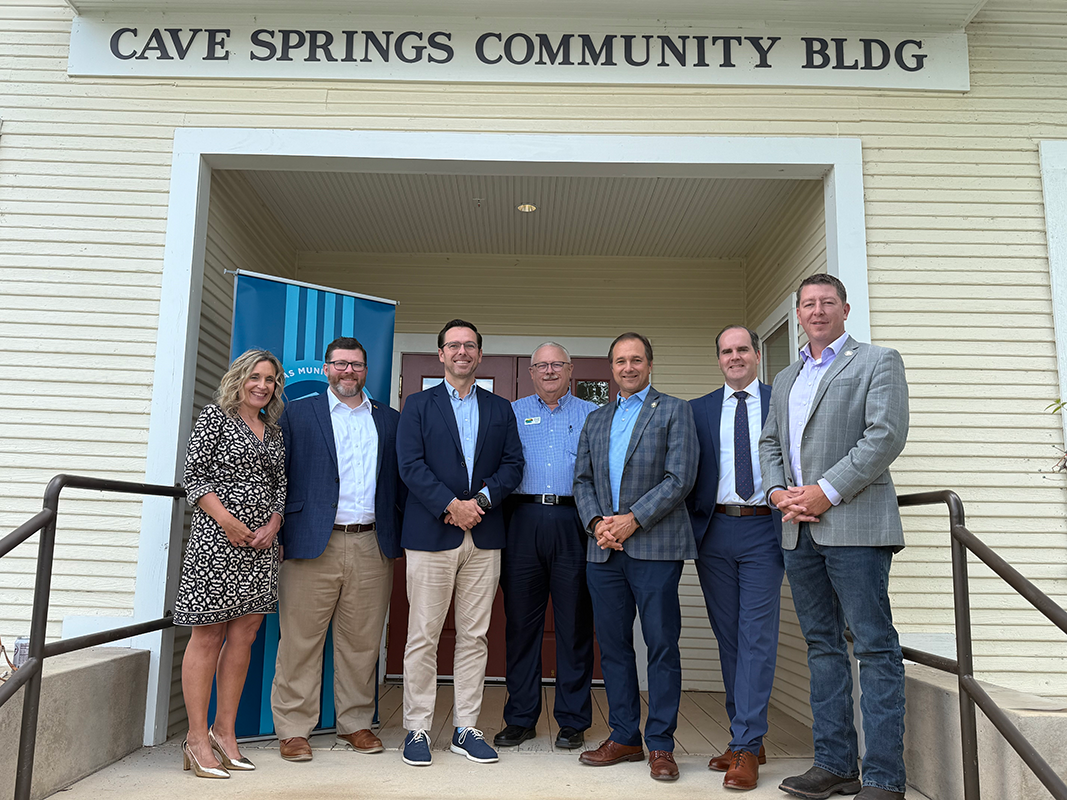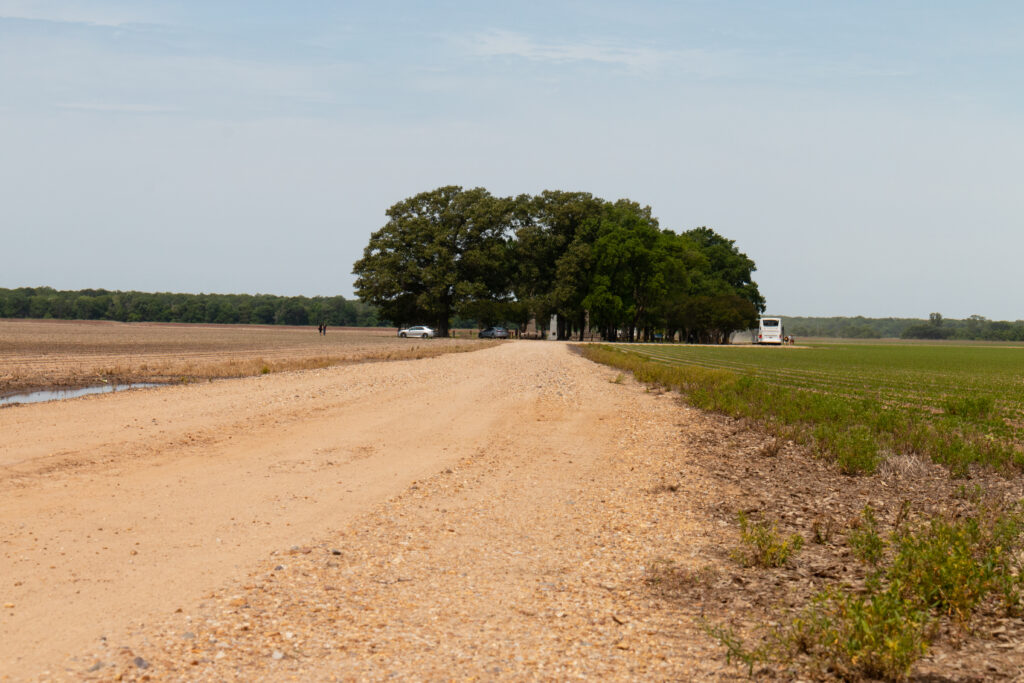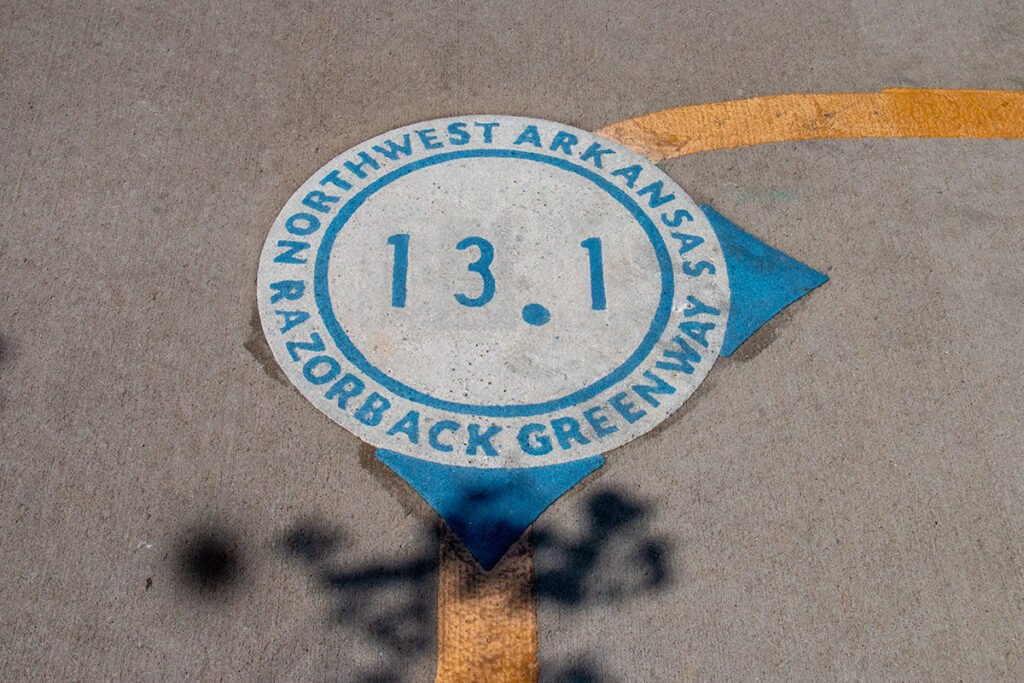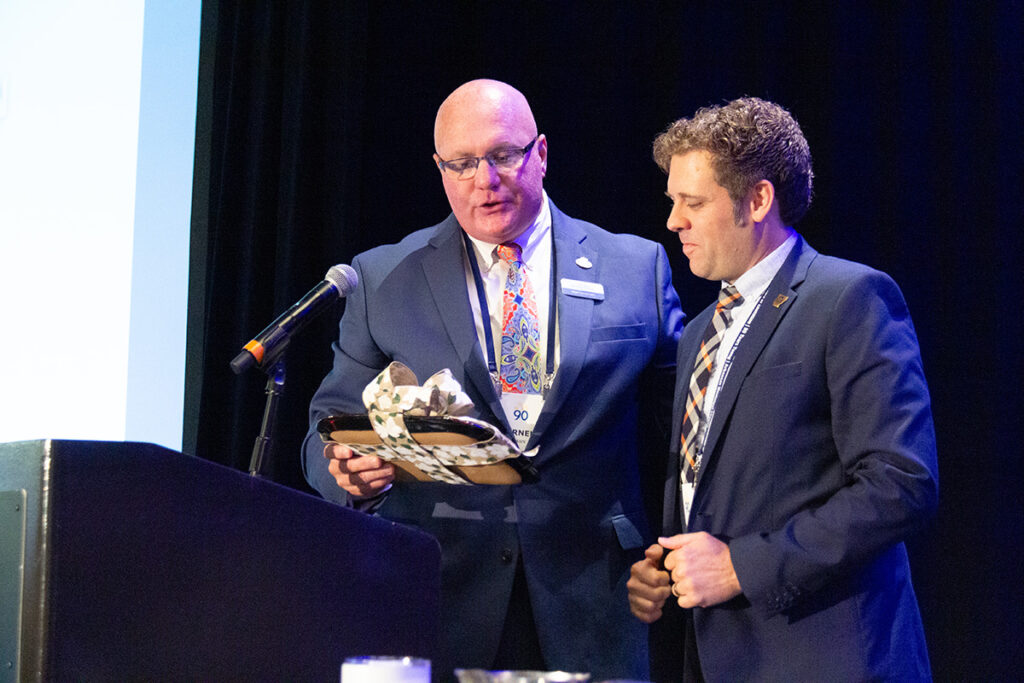State and local governments will act to lower housing costs because their constituents demand it, state legislators and city officials said at a conference on housing Thursday.
“When people ask you, ‘What are you doing about housing?’ you’ve got to have something to say,” said state Sen. Bart Hester, R-Cave Springs.
Hester, the Senate president, was one of 13 state legislators among a crowd of 70 or more attending the Northwest Arkansas Housing Supply and Affordability Summit. The Arkansas Municipal League hosted the event, which was attended by lawmakers, mayors, engineers, regulators and developers. The meeting lasted from 8:45 a.m. until shortly before 1 p.m. Thursday.
Attendees acknowledged early how much of what drives housing costs lies outside city and state control, such as interest rates or labor and material supply. However, the biggest immediate needs in Northwest Arkansas are things government can help supply, attendees said: infrastructure and zoning changes.
Three-quarters of the available land for development in cities in the U.S. is zoned for single-family homes, said state Sen. Jim Petty, R-Van Buren, and Arkansas is no exception. Cities also have lot size minimums constricting the number of homes that can be built, speakers said. Strong support for keeping those requirements comes from existing homeowners guarding the value of their homes, their greatest investment, speakers said.
The result in Northwest Arkansas: Housing prices in Benton County showed a 9% increase since last year and a 73% increase compared to five years ago, said Duke McLarty, executive director of Groundwork, the workforce housing branch of the Northwest Arkansas Council.
“We must build our way out of this,” he said. “It’s the only way.”
But the widening expanse of single-family homes on large lots has used up the reach of the region’s sewer systems, attendees agreed.
“We’re not short of land,” Hester said. “We’re short of developable land, particularly with sewer. We’ve got to fix the sewer issue before we can fix the land issue.”
The state Legislature put a measure on the Nov. 3, 2026, ballot that would authorize the state Natural Resources Commission to issue up to $500 million in state bonds to finance low-interest loans for local water and wastewater projects. Zoning and regulation changes are also expected to come up in the 2027 regular legislative session, using Senate Bill 456 of 2025 as a starting point. The bill was put in interim study by the Legislature for the upcoming session and was introduced by Petty and co-sponsored by state Rep. Rebecca Burkes, R-Springdale. Both those lawmakers attended Thursday’s meeting.
But if sewer capacity increases without land use reform, “that will lead to sprawl and sprawl will cripple Northwest Arkansas,” said John McCurdy, community development director for Rogers. Wes Craiglow, director of the Urban Land Institute of Northwest Arkansas, made the same point. Extending all kinds of infrastructure, including sewer, increases the strain on and expense of those systems, he said.
Devotion to single-family homes on larger lots by existing homeowners is a major barrier to reform, speakers said. The key to support for change is a core of engaged residents who are kept informed, said Pea Ridge Mayor Nathan See.
“People want to be heard and want to be seen,” he said. Longtime residents, or “natives,” he said, are less inclined to accept change, but newer residents are more accepting.
“Affordability can be delivered by slightly better land use,” McLarty added.
Much resistance to multifamily housing in single-family neighborhoods would dissipate if the state would require landlords to maintain their property, said Fayetteville resident Angela Belford of the Belford Group marketing firm.
Arkansas has minimal protections for tenants, allowing a relative few landlords to let their properties become dilapidated, giving rental property a bad reputation, she said. Since living costs are so high, landlords can get tenants whether they maintain their properties or not, she said.
The tax structure allowed for cities needs looking at too, McCurdy told the group. Cities in Arkansas have to depend on sales taxes, he said, but the greatest growth in Northwest Arkansas takes place in areas outside the region’s major retail centers.
“There aren’t enough cash registers in the places who need it to support the infrastructure,” he said.
This article originally appeared in the September 4 edition of the Northwest Arkansas Democrat-Gazette and is reprinted with permission.










